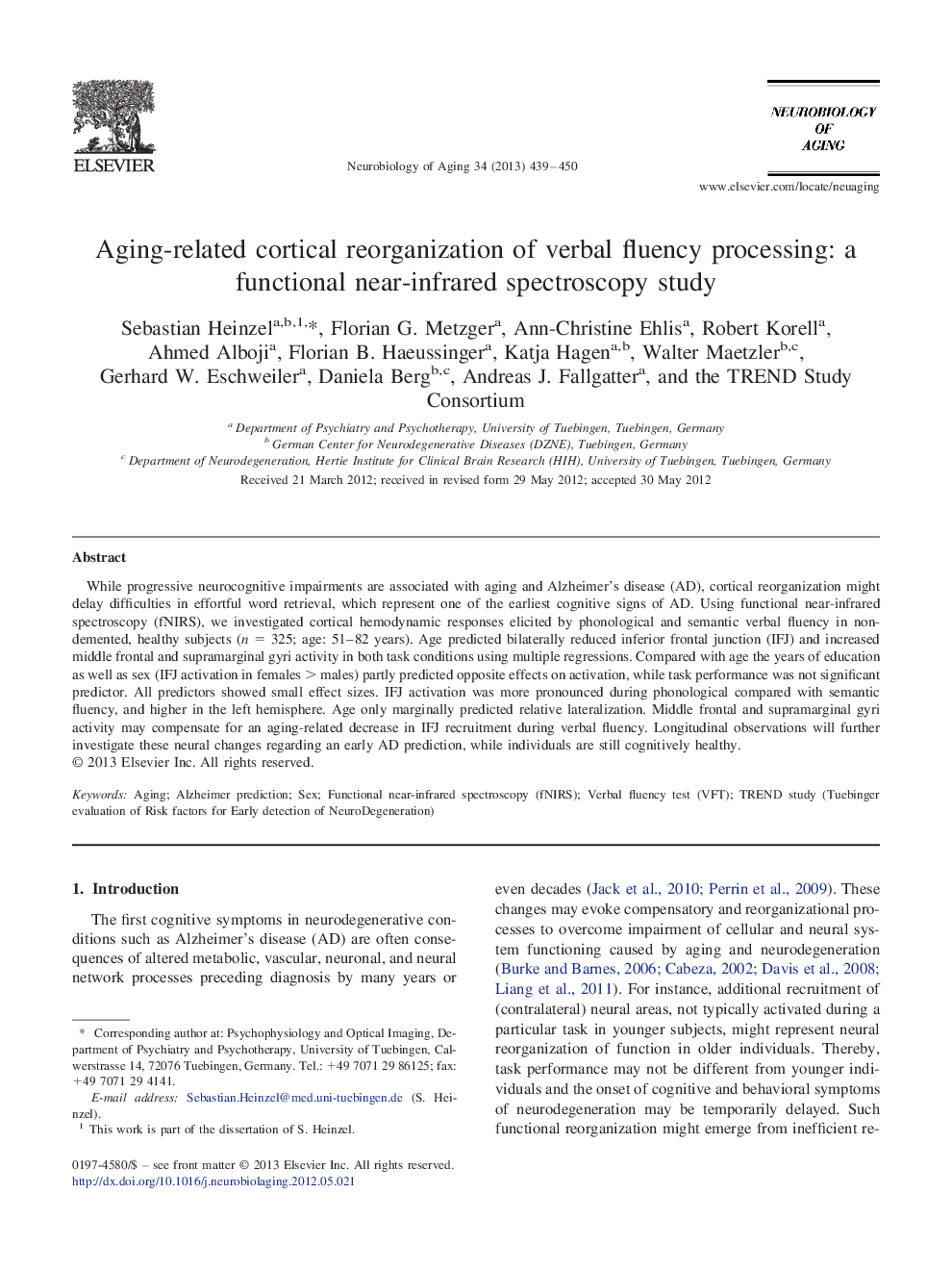| Article ID | Journal | Published Year | Pages | File Type |
|---|---|---|---|---|
| 330778 | Neurobiology of Aging | 2013 | 12 Pages |
While progressive neurocognitive impairments are associated with aging and Alzheimer's disease (AD), cortical reorganization might delay difficulties in effortful word retrieval, which represent one of the earliest cognitive signs of AD. Using functional near-infrared spectroscopy (fNIRS), we investigated cortical hemodynamic responses elicited by phonological and semantic verbal fluency in non-demented, healthy subjects (n = 325; age: 51–82 years). Age predicted bilaterally reduced inferior frontal junction (IFJ) and increased middle frontal and supramarginal gyri activity in both task conditions using multiple regressions. Compared with age the years of education as well as sex (IFJ activation in females > males) partly predicted opposite effects on activation, while task performance was not significant predictor. All predictors showed small effect sizes. IFJ activation was more pronounced during phonological compared with semantic fluency, and higher in the left hemisphere. Age only marginally predicted relative lateralization. Middle frontal and supramarginal gyri activity may compensate for an aging-related decrease in IFJ recruitment during verbal fluency. Longitudinal observations will further investigate these neural changes regarding an early AD prediction, while individuals are still cognitively healthy.
